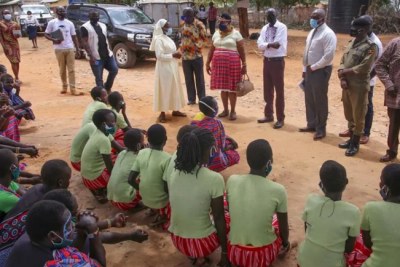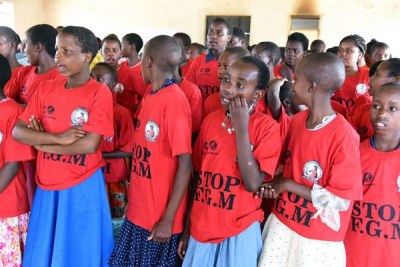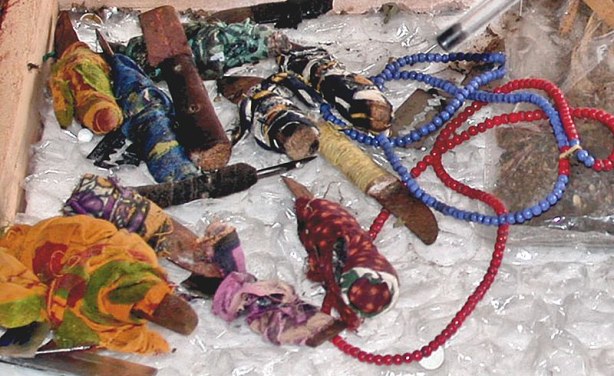-
The Conversation Africa, 21 December 2022
Female genital mutilation is a practice deeply rooted in cultural traditions around the world. The World Health Organisation defines it as comprising all procedures that involve… Read more »
-
Kenya: Police Seek Woman Behind FGM Event in Njoro's Ewaat Village
Capital FM, 20 December 2022
Police in Njoro are looking for a circumciser who was caught taking youthful women through Female Genital Mutilation (FGM). Read more »
-
Kenya: Woman Denies Conducting FGM on Six-Month Old Infant
Capital FM, 8 December 2022
An elderly woman in Loitoktok Sub County has denied conducting female genital mutilation to a six-month old girl. Read more »
-
Africa: Innovative Solutions for Ending Female Genital Mutilation Win Seed Funding
UNFPA, 29 November 2022
Two ground-breaking innovative solutions for ending female genital mutilation (FGM) on the continent are the winners of UNFPA's FGM Innovation Hacklab. Read more »
-
Kenya: Lesuuda Calls for Increased Societal Collaboration to Minimize Teen Pregnancies
Capital FM, 22 November 2022
Samburu West legislator Naisula Lesuuda has called for enhanced societal collaboration to reduce prevalence of teen pregnancies in the Country. Read more »
A Solution For Peaking FGM Rates in Kenya During School Holidays
In Kenya, girls are mostly subjected to 'the cut' - the removal of parts of the external female genital organs for non-medical reasons, during the school holidays. They have a long period away from school and hence are perceived to have time to heal from the procedure without scrutiny. There is an increased risk for girls as schools in Kenya have closed for about two months, from November 25, 2022 to January 23, 2023.
Female genital mutilation (FGM) was officially recognised as a form of violence against women and a violation of human rights in the 1993 Declaration on the Elimination of Violence against Women. Ending this practise contributes to the achievement of Sustainable Development Goal targets. In 2012, the UN General Assembly designated February 6 as the International Day of Zero Tolerance of Female Genital Mutilation.
Kenya is a party to, and has ratified, the convention on female genital mutilation, alongside others that focus on the rights of women and children. The country has enacted the Prohibition of Female Genital Mutilation Act of 2011. This law has provided a good environment for programmes and development of policies for 22 hotspot counties.
Amref Health Africa (and its associated Amref International University) has for a number of years worked to end FGM through community-centred interventions and evidence generation. One of its promising interventions is the community-led alternative rite of passage which supports girls to undergo the transition without being cut.
The study found that the intervention had a positive impact, while early and forced marriages of children, as well as teenage pregnancies, also dropped, writes Tammary Esho for The Conversation.
InFocus
-
Female genital mutilation (FGM) and child marriage are illegal in Uganda and Kenya, yet the practices persist. A fourteen-year-old Ugandan girl and five others, were allegedl Read more »
-
The government has come up with more stringent measures in the fight against female genital mutilation. The Ministry of Public Service and Gender has also developed focused ... Read more »





